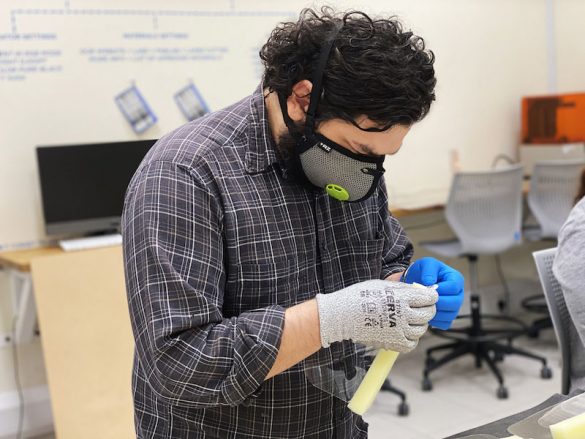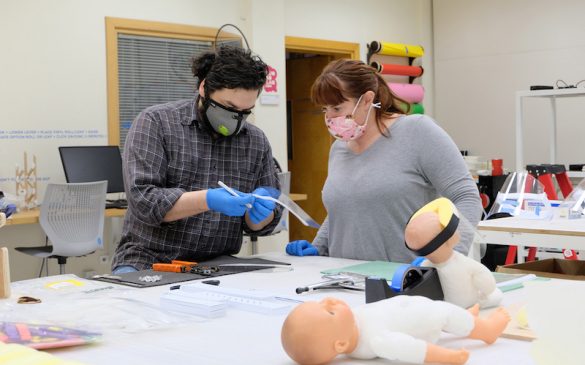Protecting vulnerable groups of people from contracting COVID-19 is a challenge facing healthcare professionals across the globe – especially when some of them barely weigh three kilogrammes.
During the last week of Ramadan 2020, Dr Mai Al Qubaisi, a Senior Consultant in Neonatal Intensive Care, and Medical Director of the Neonatal Intensive Care Unit (NICU) at Hamad Medical Corporation (HMC), was wondering how she could prevent her tiny charges from contracting the disease.

She had read and heard reports of how countries such as China and Taiwan – who were amongst the first to report cases – had started using infant face-shields for new born babies. With the number of cases in Qatar on the rise, she knew she would have to act quickly.
When I learned that some mothers – whose newly-born babies were in the NICU – had tested positive for the virus, my first response was to ensure the safety of their infants.
She said that to protect the infants, she would need to import wearable equipment as they were being held and bottle-fed by their mothers and their caregivers.
She searched online but couldn’t find any that would serve the purpose.
And as the number of cases in Qatar were increasing, I felt I was running out of time. That’s when my niece mentioned that she’d seen an Instagram post of face shields being produced by VCUarts Qatar.
Dr Al Qubaisi reached out to Weill Cornell Medicine Qatar (WCM-Q) who put her in touch with Virginia Commonwealth University School of the Arts in Qatar (VCUarts Qatar), and the university’s Fabrication Coordinator Chris Buchakjian and the FabLab Team – the same team who helped design and manufacture adult face-shields for Qatar Foundation’s Public Health Care Centre in Education City a few weeks back.
Sensing the urgency of the request, the VCUarts Qatar designers offered to meet with Dr Al Qubaisi as soon as possible. She said that it was the day before the start of the Eid break when she first met with Chris Buchakjian to discuss measurements and designs.
So I assumed that the masks would be ready only after the Eid break. But much to my amazement, Chris and his team not only said they would help design and deliver the masks, but that they would work over the Eid break and have them ready as soon as possible.
And they did. She had the first batch of infant face-shields – around two dozen of them – delivered to her on the second day of the Eid holidays. The VCUarts Qatar team literally worked around the clock and through their holidays for the babies. It’s a humanitarian gesture that she said she will never forget.
Buchakjian and the FabLab team used infant-sized dolls supplied by VCUarts Qatar’s Health and Safety department.
We succeeded in manufacturing and delivering 100 infant face-shields in just a few days because the people and resources were already in place. And we’re preparing to produce more.
Ultimately design is an aspirational practice, according to Buchakjian. He said that they create products that they want to see in the world, and they strive to do so in a way that their actions positively impact others. The equipment is currently being used by infants in NICU at both HMC and the Cuban Hospital.
Dr Al Qubaisi said that when she first thought of buying infant face-shields, not for a moment did she think that she would find and have them manufactured in Qatar, thanks to the FabLab team of VCUarts Qatar – it’s wonderful what can happen when people work together for a common purpose.
For more information about VCUarts Qatar and their FabLab Team, visit qatar.vcu.edu.











